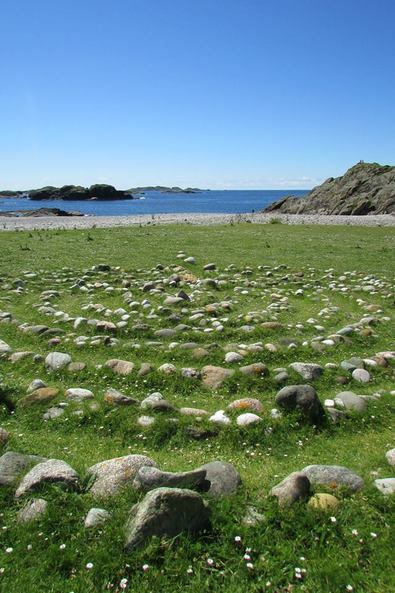Take a Trip
Reflections on the Sayings of the Desert Fathers
 When I lived in Buffalo, New York I’d take the city bus to the airport for trips. I walked almost a mile to the bus stop, rolling my suitcase behind me. Something about that,the mile walk at the beginning and end of the trip, told me, “You’re on a journey.” Putting one foot in front of the other said, “You’re going somewhere,” or “You’re returning home.” The mile walk made me consider the leaving and returning and that the trip was an experience that might change me.
When I lived in Buffalo, New York I’d take the city bus to the airport for trips. I walked almost a mile to the bus stop, rolling my suitcase behind me. Something about that,the mile walk at the beginning and end of the trip, told me, “You’re on a journey.” Putting one foot in front of the other said, “You’re going somewhere,” or “You’re returning home.” The mile walk made me consider the leaving and returning and that the trip was an experience that might change me.
We don’t think in terms of pilgrimages with our traveling. We take vacations and convention trips and weekend getaways, but a pilgrimage isn’t a part of our regular vocabulary. We take trips for fun or to see people or things, but we don’t think of them in as a trip with a special spiritual significance. The Christian tradition, though, is filled with pilgrimages, trips to the Holy Land or to sites linked with saints. I’ve thought of my trips to Iona as a pilgrimage, a journey to a site of spiritual significance, where the going, arriving, staying, and returning home might change me once I’m back home.
In the Sayings of the Desert Fathers Abba Tithoes says, “Pilgrimage means that a person should control his or her own tongue.” You know that controlling our words is not a virtue of our present age. We value speaking our minds. We go on Twitter rants. We shout past one another on cable news. The person who stays silent we say “just needs to open up.” On the other hand, Abba Tithoes, reflecting the much different world of the Desert Fathers, says there’s something like a pilgrimage in the practice of controlling the words that come out of one’s mouth.
Learning to hold your tongue takes you to a new place. When I think about about words I spoke in the past, there are times I wished there was more that I could have said, but I have many more regrets with the words I wish I hadn’t said. So much gossip and lazy criticisms and crude cut-downs have come out of my mouth. I wish I could take those things back. Learning to be silent with so many things I don’t need to say and learning to speak the things that need to be spoken--that learning takes me to a different place. When I learn to control my words I step out of the normal current of life and step into a different stream, where I value the power of my words to heal or to hurt, and I use them as a beloved creation of God not as one carried on with the boringly normal stream of using words as valueless currency to just toss about without any concern where they go.
Today I set out for a new place. Today I take a pilgrimage. I don’t have to even leave home, but I begin that journey with thoughtfulness about what I might say.
"In drawing up its regulations, we hope to set down nothing harsh, nothing burdensome." - Rule of St. Benedict